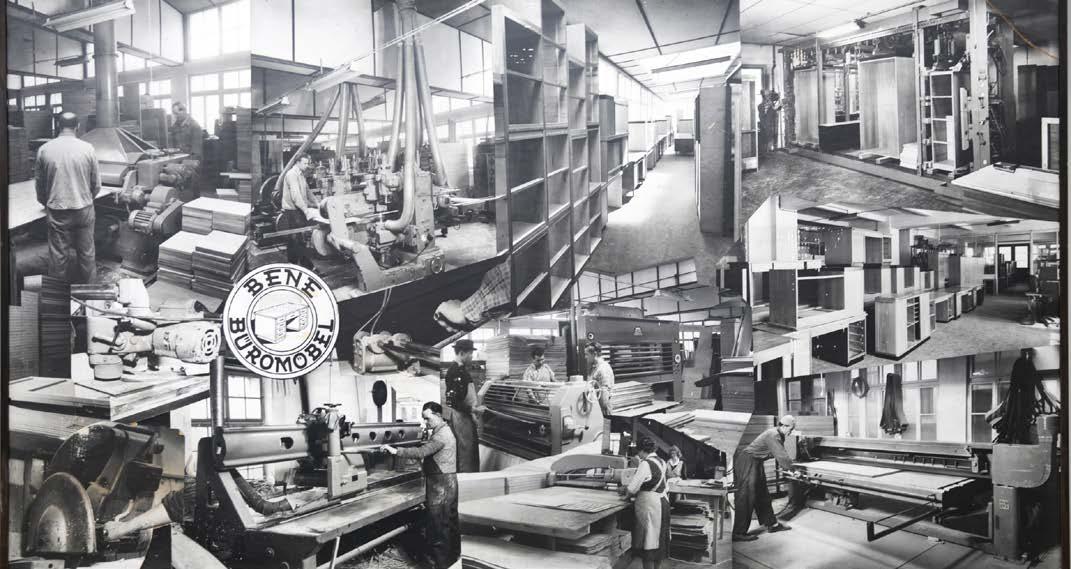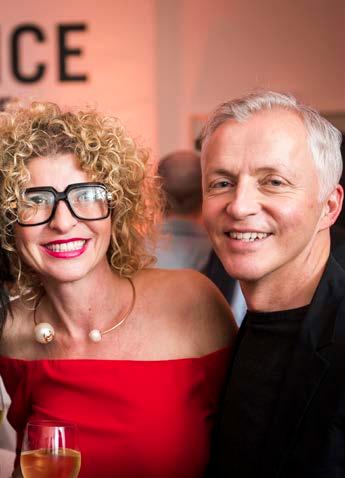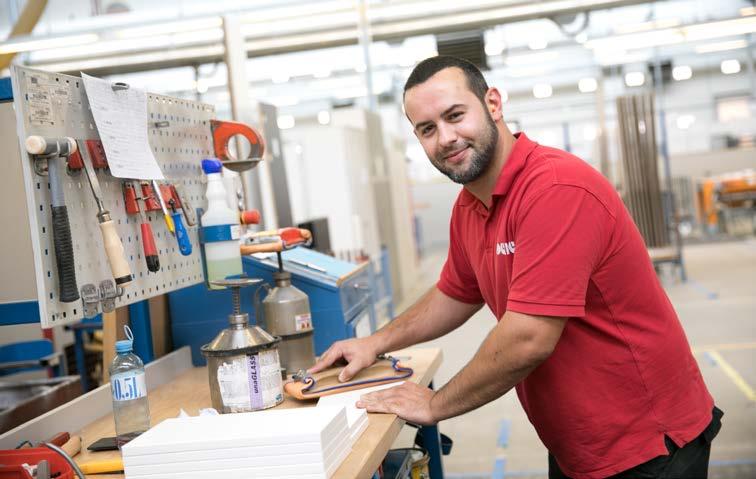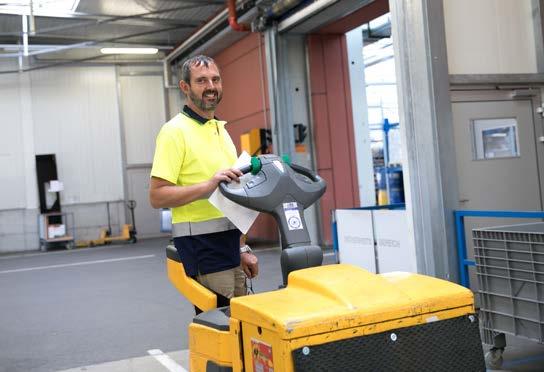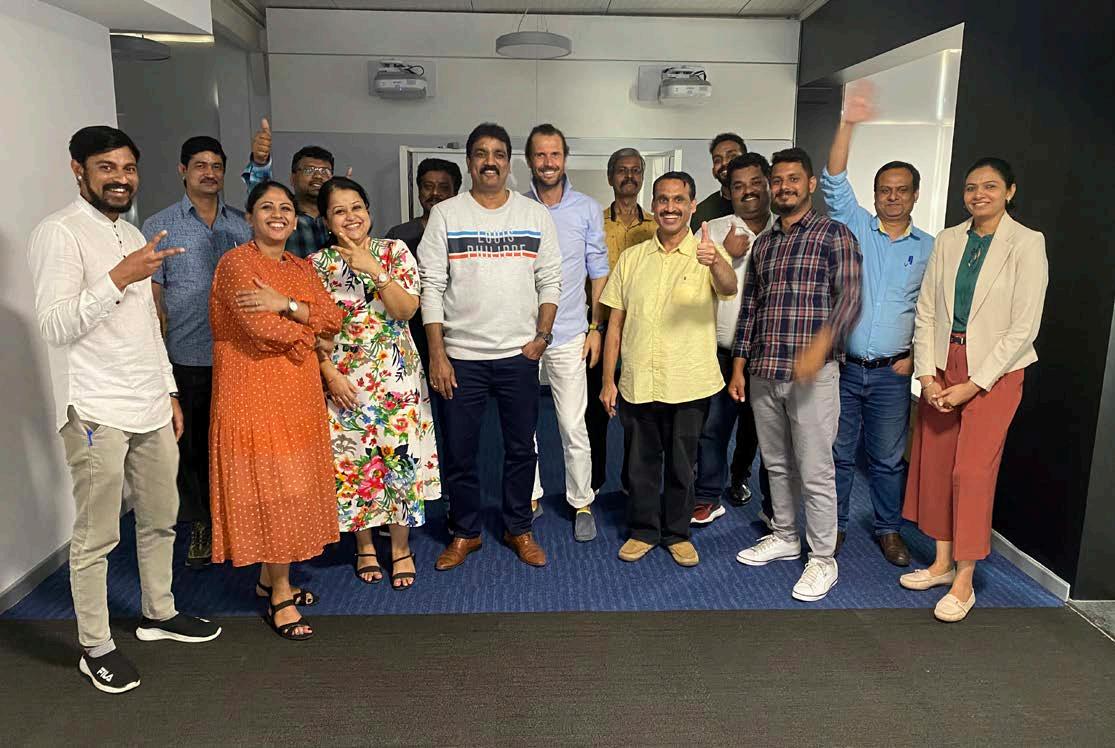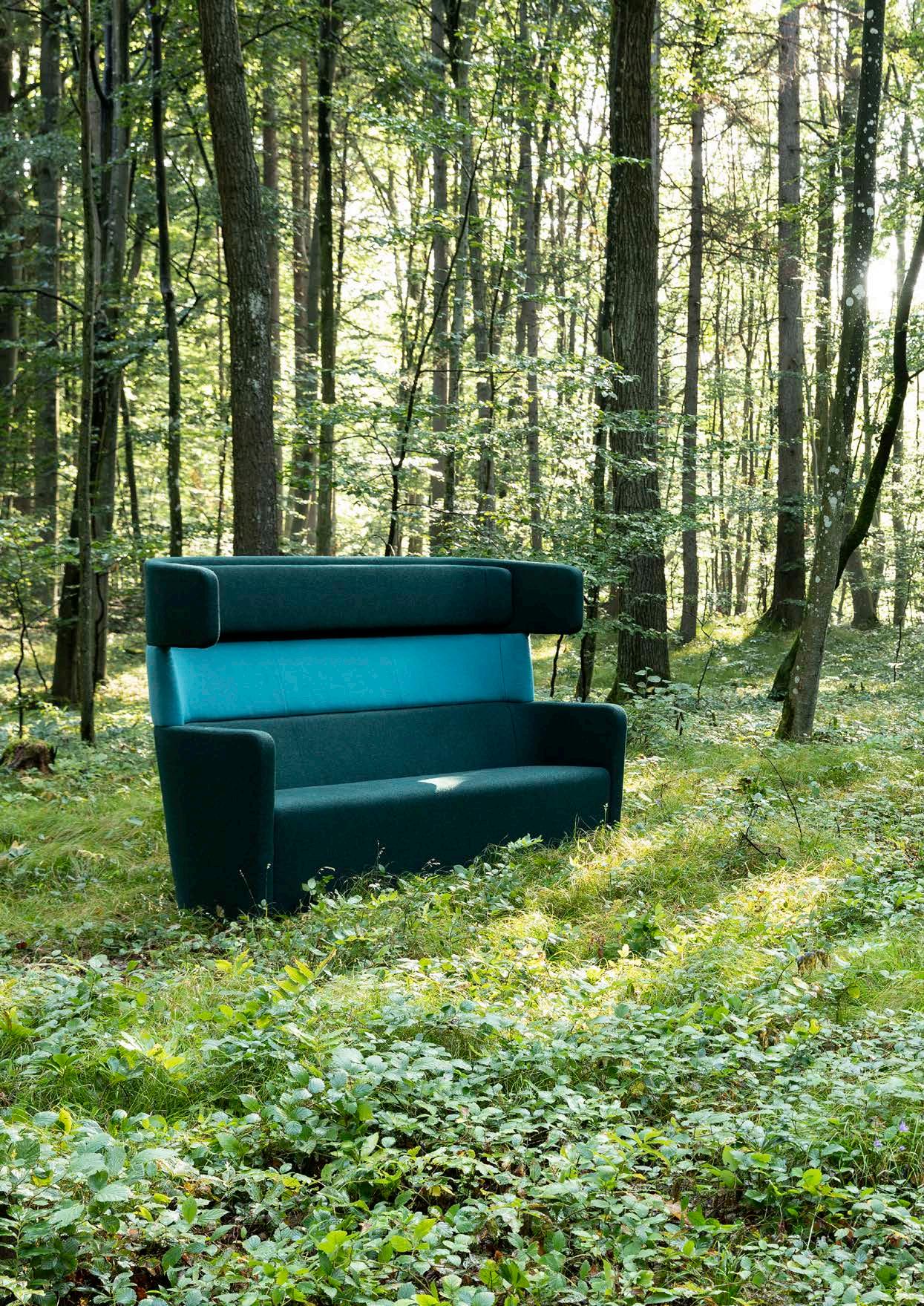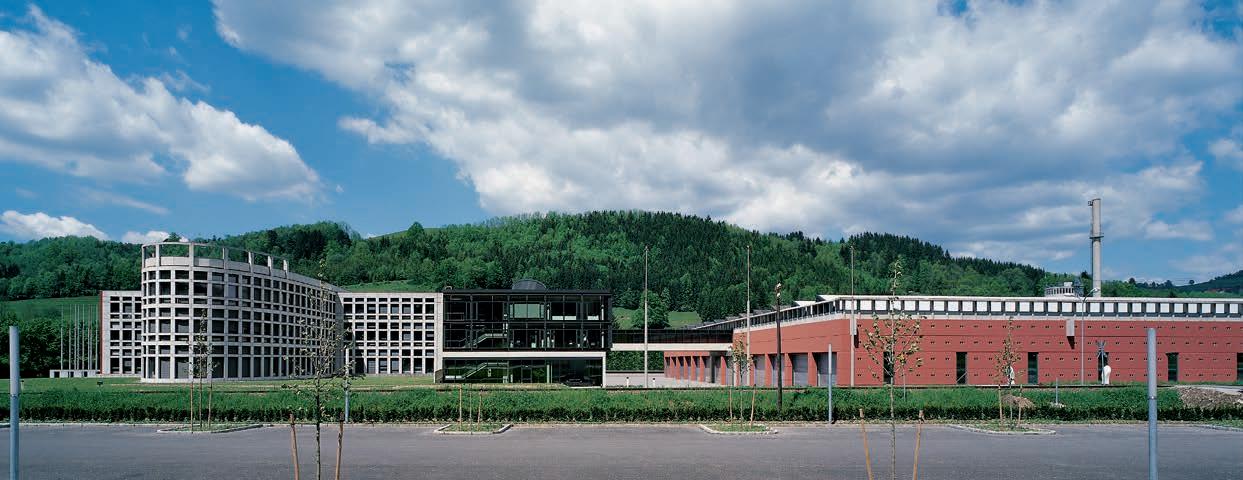
35 minute read
OUR COMPANY
OUR
COMPANY
Bene is the leading international specialist in the design and furnishing of inspiring office and working environments. With its concepts, products and services, Bene turns the office into a living space where people can not only work well, but also enjoy what they do.
1.1. OVERVIEW OF BENE GMBH
Together with its clients and partners, Bene develops office solutions that spatially represent the work processes, cultures and identities of a company. The high standards that Bene has always maintained in terms of functionality, quality and design can be felt in every single project.
Bene can look back on a long history: Founded in 1790 as a small joinery workshop in Waidhofen a. d. Ybbs in Lower Austria, the company is now represented in over 40 countries with a solid sales network of its own branches and authorised dealers, stretching from Vienna via Berlin, London and Paris to Dubai and Sydney. Find the Bene location closest to you: https://bene.com/en/bene-services/branches/
The centre of the Bene world has always been located in Waidhofen in the Mostviertel region, where development, design and production are combined under one roof. With an integrated order processing system and consistent justin-time production, Bene has one of the most modern and efficient production facilities for office furniture in Europe. The Bene Group employs about 700 people – about two thirds of them in Austria. Of the Group’s employees, about one third are workers and about two thirds are salaried employees.
Due to the pandemic, sales of EUR 119 million were generated in the COVID year 2020.
INFOBOX
After an interruption of several years due to name changes, on 12 November 2019 Bene once again received the right to bear the coat of arms of the Republic of Austria for its services to the Austrian economy, for extraordinary achievements and great commitment.
UNTERNEHMEN
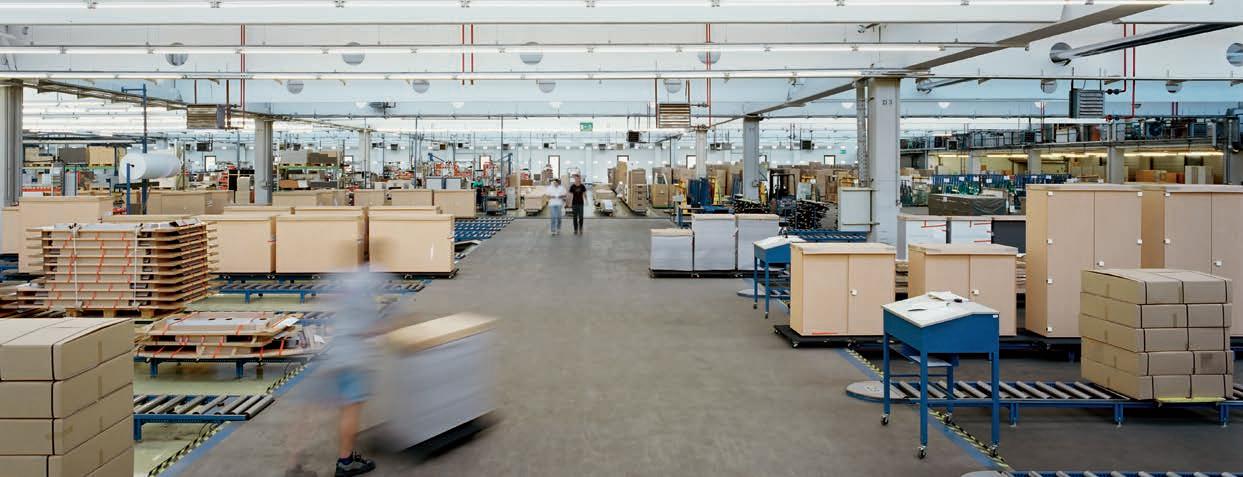
1.1.1. MILESTONES
The following chart shows the Bene Group’s most significant economic and ecological milestones.
1790–1980 Company founded (1790); start of industrial office furniture production (1951); new production site in Waidhofen a. d. Ybbs (1975)
1981–2000 Austrian national coat of arms awarded; conversion to water-based varnishes (1996); Austria Quality Seal for wood products (1996)
2006 Certification according to the standards EN ISO 9001 and EN ISO 14001
2008 Award as Austrian Model Company; Austrian Ecolabel for products; GECA certificate for products; LGA tested in the area of products
2009 Introduction of the Bene EPD / LCA; PEFC certification; Sustainable Product Award Austria; FISP certification for Bene GmbH and Bene PLC
2010 Blue Angel certification for products; admission to respACT and the UN Global Compact
2011 Publication of the first sustainability report; ASRA – Austrian Sustainability Reporting Award
2012 Greenguard certification for products; nomination for the Trigos Austria and Lower Austria in the workplace category
UNTERNEHMEN
20.139 20.139
BEN-2008 GECA 28-2006– Furniture and Fittings
2014 FSC® certification
Network Austria WE SUPPORT
2015 Acquisition of Bene by BGO Holding GmbH
2016 Award as Austria’s best training company of the year for joiners
2017 Publication of the second sustainability report
2018 Certification according to EN ISO 38200; Award as Austrian Lead Company
2020 FEMB level certification for products
INFOBOX
Nachhaltigkeitsbericht/20110801
Einband.indd 1
beNe heaDOFFice a-3340 WaiDhOFeN / Ybbs schWarZWieseNstrasse 3 teleFON +43-7442-500-0 e-Mail OFFice@beNe.cOM Österreich: bregenz, Graz, innsbruck, klagenfurt, linz, salzburg, Wien. aUstralieN: Melbourne. ÄGYPteN: kairo. belGieN: brüssel-Zaventem. bUlGarieN: sofia. chiNa: hong kong, shanghai. DÄNeMark: kopenhagen. DeUtschlaND: aschaffenburg, berlin, bayreuth, bremen,Donauwörth, Düsseldorf, essen, Frankfurt am Main, hamburg, hannover, köln, leipzig,Mannheim, München, Nürnberg, regensburg, saarlouis, stuttgart, süßen, Ulm, Villingenschwenningen. FraNkreich: avignon, lille, lyon, Montpellier, Nantes, Nimes, Nizza,Paris, reims, toulouse. GrOssbritaNNieN: london. iNDieN: bangalore, chennai, Mumbai,New Dehli, Pune. italieN: asti, Mailand, Meran, rom. irlaND: Dublin. JaPaN: Osaka, tokio. kasachstaN: almaty. kUWait: kuwait. liechteNsteiN: schaan. lUXeMbUrG: luxemburg. NieDerlaNDe: rotterdam, Veenendaal. POleN: Warschau. POrtUGal: lissabon. QUatar: Doha. rUMÄNieN: bukarest. rUsslaND: Moskau, st. Petersburg. schWeiZ: Zürich-Wallisellen. siNGaPUr: singapur. slOWakei: bratislava. slOWeNieN: laibach. sPaNieN: barcelona. tschechieN: Prag. UkraiNe: kiew. UNGarN: budapest. Usa: New York. VereiNiGte arabische eMirate: Dubai. WWW.beNe.cOM NachhaltiGkeitsbericht 10/11 VOllVersiON Nach haltiG keits bericht10/11 UNiteD NatiONs GlObal cOMPact cOMMUNicatiON ON PrOGress
Owner: BGO Beteiligungsverwaltungs GmbH Company form: Private Limited Company (GmbH) Structure: Line organisation Bene‘s certifications: ISO 9001, ISO 14001, ISO 38200, PEFCTM, FSC®, FISP® , Austria Quality Seal Austrian Model Company
1.1.2. BENE PRODUCTS
As a one-stop provider, Bene offers products and room solutions for all spaces and places in the modern office.
Meeting & Workshop Partitioning
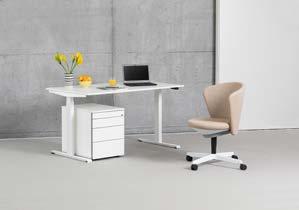
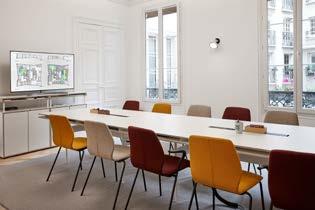
Worktable

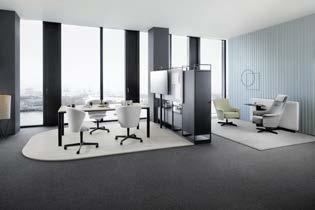
Collaboration Trading goods Premium
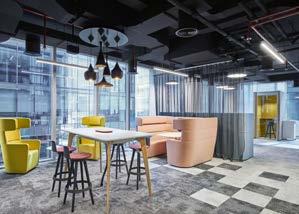
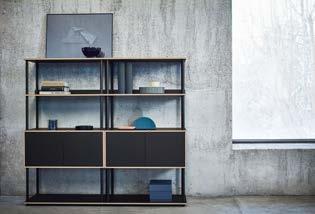
Seating Storage
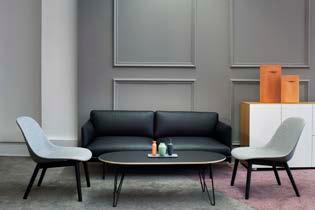

1.1.3. PRODUCTION SITE IN WAIDHOFEN AN DER YBBS (AUSTRIA)
In spite of its global operations, Bene deliberately concentrates its production at one site in Austria. This has been located in Waidhofen an der Ybbs ever since the company was first founded in 1790. The modern and efficient production facility, with over 42,000 m² of floor space, is located on the company premises, which are approx. 11 ha (110,000 m²) in size.
High standards in terms of the environment and safety are guaranteed through this site in Austria. Austrian requirements related to areas such as quality standards, the legal framework and training opportunities help to ensure competitiveness and form one of the foundations for sustainable economic activity. The Bene plant has been part of the municipality of Waidhofen for more than 230 years (http:// waidhofen.at/). As such Bene has long been an integral part of the regional economic structure. We are strongly committed to the region and therefore accept its disadvantages, such as its lack of motorway or train
connections. Thanks to our many years of economic activity in the area, Bene has a good relationship with the city of Waidhofen. Therefore, no formal programmes to regulate the company’s effects on the community are necessary.
By concentrating on this production site, Bene not only enjoys advantages in logistics through the central location in Central Europe, but also provides secure jobs in the region.
In 2009, a research and development centre was put into operation at the Waidhofen site, which for the first time enabled the Group to present its entire product competence comprehensively to its customers and employees.
Bene produces around 100,000 workplace furnishings, 10,000 metres of wall and 600,000 individual items of furniture annually at its site in Lower Austria.
INFOBOX
Regular excursions and visits by Bene customers from a wide range of countries revitalise the region – an economic factor for gastronomy, the hotel industry and tourism that should not be underestimated. Bene hosted around 900 international visitors, as well as its own employees from all over the world in 2019 alone, both on site and in the surrounding area.1
1.1.4. CORPORATE STRATEGY
The company has been following this strategy consistently in the aim of expanding itself in a sustainable, growth-orientated and innovative way to make it European market leader:
•Bene continues to establish its position as a consultant, designer and outfitter of forward-looking offices and workstations based on its values in an inspiring, pioneering and results-oriented manner, thereby making a sustainable contribution to the corporate success of its customers.
•To this end, Bene pursues a qualitative and selective market growth strategy with direct as well as indirect sales and distribution specific to the market, combining
B2B market access with B2C approaches.
•Bene presents itself on the market as a quality provider with a competitive full product range and innovative consulting and planning services prior to the furniture purchase process.
•Bene designs and produces products in the heart of Europe and stringently pursues the themes of sustainability and ecology. In particular, the focus is on new production techniques and materials.
•Establishing an integrated IT and process landscape with highly automated, centralised production process creates the basis for these developments.
Michael Fried
Executive Board Member For Sales, Marketing & Innovation
Working at the interface between more than 230 years of quality tradition on the one hand and ongoing innovation and award-winning designs on the other is what makes our work at Bene so appealing. In addition, the close link between design and architecture as well as form and functionality provides the opportunity to make an active contribution to shaping our modern working environment every day, together with a terrific team.
1.2. INTEGRATED MANAGEMENT SYSTEM POLICY
The CSR policy2, first published in 2011, was merged with the existing IMS policy in 2014 (IMS stands for integrated management system) in 2014. The requirements of the revised management system standards, data management processes, energy management, ecology, the chain of custody, IT security and the ICS3 have been incorporated into the latest edition.
At Bene Group we pursue the following IMS policy, in line with our vision and our mission statement: We base our actions on the needs of our customers and our company in order to achieve success together. We develop pioneering, innovative and inspiring concepts and products, and are convinced that solutions that are based on people, optimum functionality and innovative design make the working environment a pleasurable living space. The result is spaces where people work happily and successfully. This is how we are setting new standards for work environments.
Our ongoing goal is to continuously improve the entire organisation. We agree on joint goals, document them and measure their attainment using key performance indicators. What drives us is our never-ending pursuit of improvement. We challenge the familiar and question the status quo - even our own. We see the applicable statutory regulations as a minimum requirement and are committed to being active in sustainability matters even beyond the requirements wherever possible.
It is important to us that we handle information concerning our customers, suppliers and employees confidentially. This is why we protect this data appropriately in accordance with the General Data Protection Regulation (GDPR).
1.2.2. ECOLOGICAL RESPONSIBILITY
We set ourselves demanding goals when it comes to conserving resources. We attach importance to improving energy efficiency, increasing recovery and recyclability, and minimising emissions and waste. We think in complete product life cycles and consider environmental criteria from the initial product idea through to its recycling. As a company that processes wood products, we are committed to sustainable forestry. More than half of the material used is wood-based. All of the tabletop materials that we use have been certified in accordance with the CoC standards for sustainable forest management (PEFCTM, FSC®, ISO 38200). Our production site in the heart of Europe gives us the advantage of short distances to our customers and suppliers. We accept responsibility for the safety and health of our employees and for an intact environment.
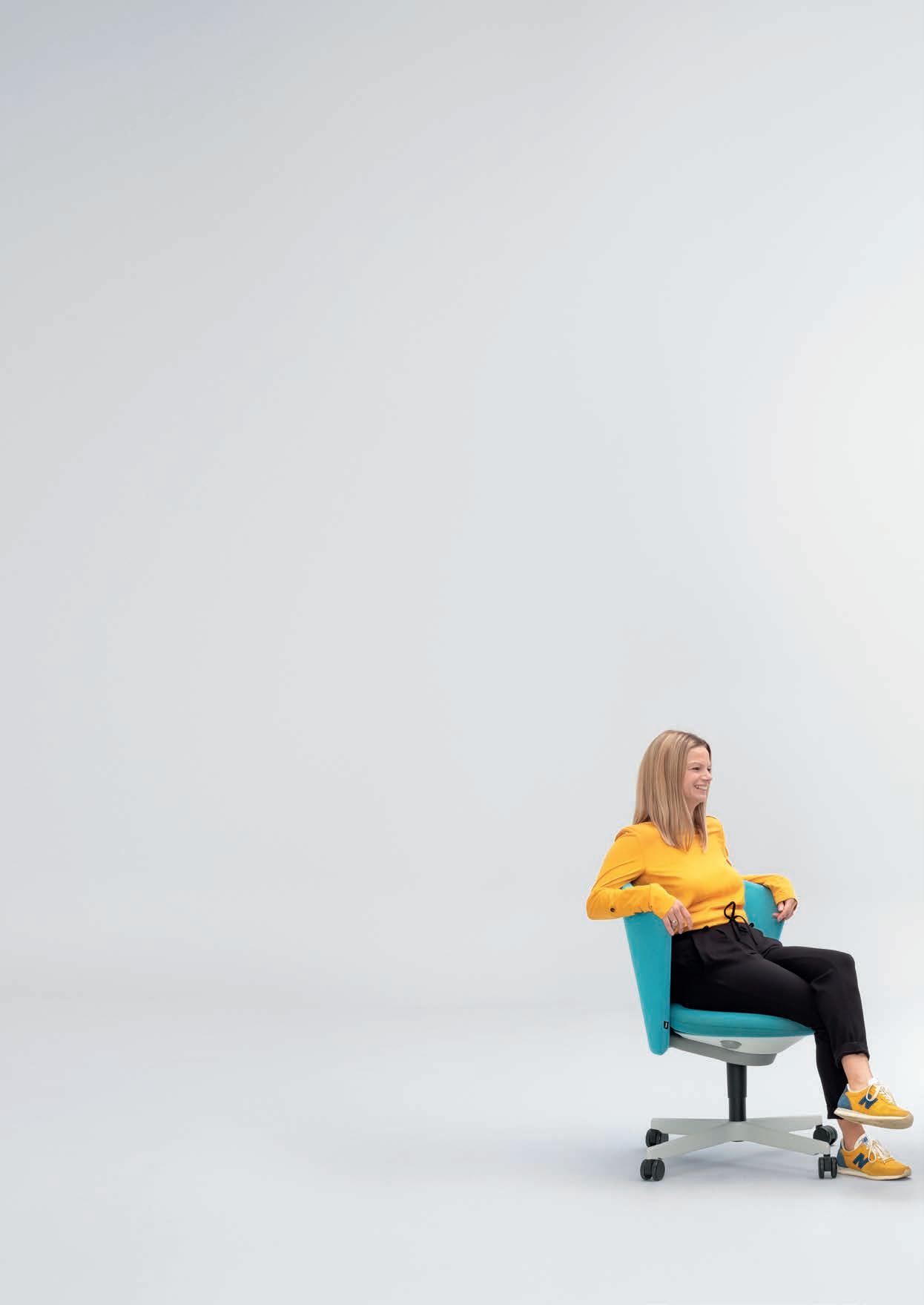
1.2.1. ECONOMIC RESPONSIBILITY
The offices and work environments designed by Bene contribute towards the success of a company. Working together with customers and partners, we create customised workstations where people are able to work well and efficiently. We create holistic working environments by developing innovative, high-quality and design-oriented products. We focus on our customers’ needs and maintain good and sustainable customer relationships. All our operations and processes are internally coordinated which is the key to our success. The more we align these, the more competitive and economically successful we become. In complying with economic aspects we use state-of-the-art technology for our processes and products. The integration of the different management systems (QSE4, CSR, energy, CoC5, ISM6, ICS) into an overall system enables economic management and coordination within the company. International norms and standards form the basis here.
1.2.3. SOCIAL RESPONSIBILITY
We are aware that a company also has social obligations in addition to its economic duties. We maintain respectful relationships, and work together in a way that fosters attentiveness to values. Cultural diversity is an important prerequisite for us to identify needs and therefore to offer holistic and innovative working environments to people and customers worldwide. We are a fair and responsible employer that offers equal opportunities and a positive and safe workplace setting in a dynamic environment. Excellent, motivated and creative employees are the key to our company’s success. We support all employees with suitable training and further education measures and make sure that everyone is employed in positions appropriate to their qualifications. We respect, meet and support human rights to our utmost ability within our circle of influence. Our ethical criteria ensure that our company does not participate in human rights violations. Company representatives, wherever they may be, must behave fairly, with integrity, and in line with Bene‘s ethical standards. Thus, it is a matter of course for us to follow the principles of the UN Global Compact. Michael Fried and Jörg Schuschnig Executive Board Member of the Bene Group
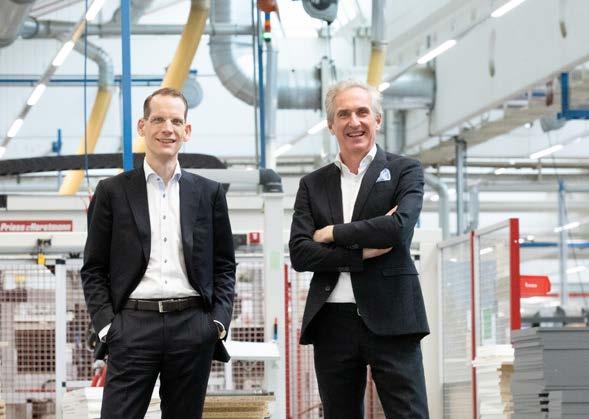
The IMS policy7 is communicated to employees via the intranet together with other internal regulations, such as the procurement policy or our Code of Ethics. External communication is achieved via our homepage and this report.
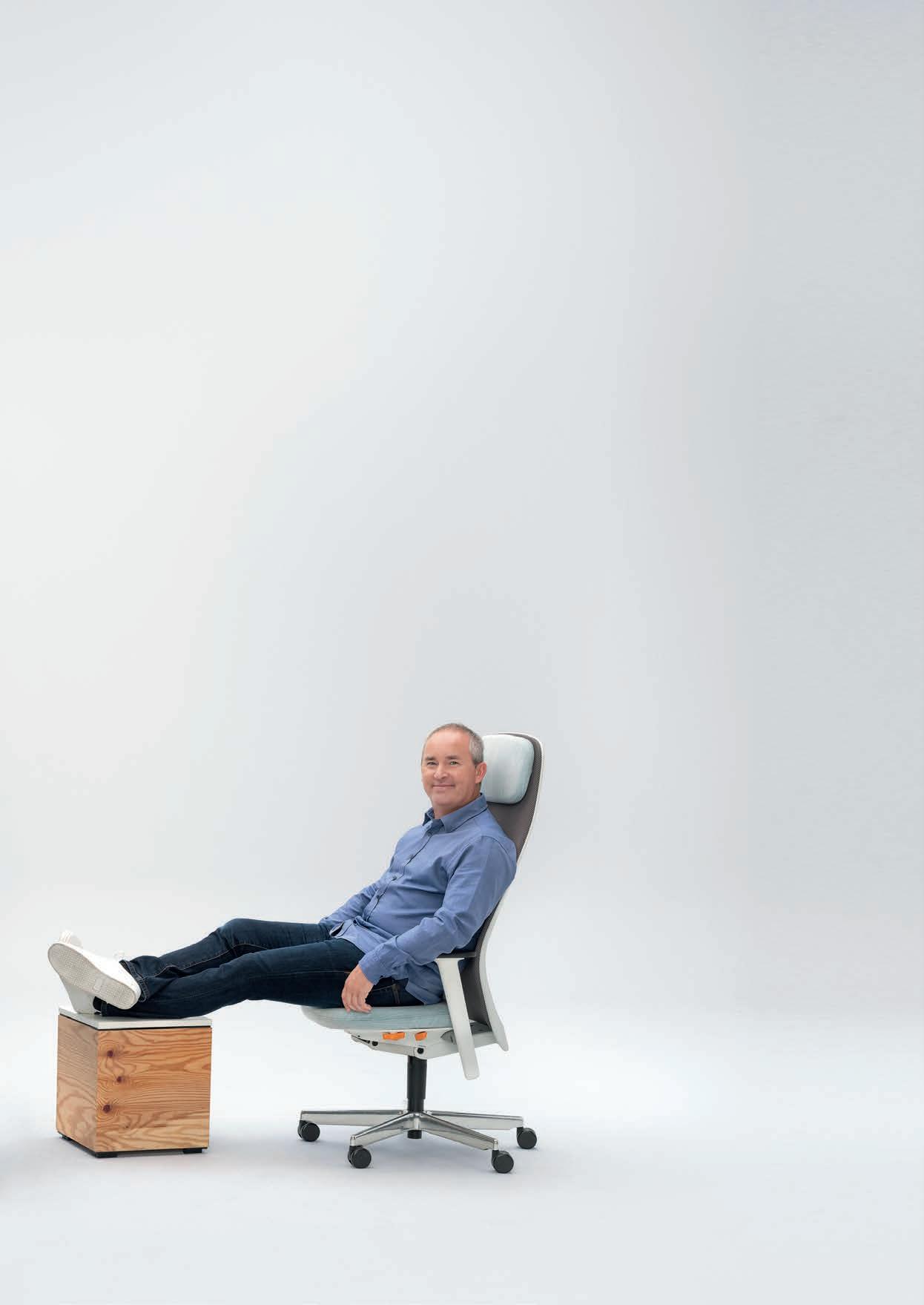
1.3. SUSTAINABILITY AT BENE
Bene GmbH has had an Integrated Management System (IMS)8 for many years. Since production is centralised at a single location, all of the company’s own production activities are completely covered by the IMS. It is certified according to EN ISO 14001 and EN ISO 9001 and covers the essential contents of ISO 45001, ISO 50001 and ISO 31000. In 2008, Bene was awarded the title of Austrian Model Company (http://www.qualityaustria.com/index. php?id=2734) and was certified according to the Chain of Custody standard PEFC (https://www.pefc.at/) in 2009, according to FSC (http://www.fsc-deutschland.de/de-de; https://info.fsc.org/) in 2014 and to ISO 38200 in 2018. There is a safety management system established within the company, but certification according to the ISO 45001 standard is not currently being pursued. We also achieved certification from the British Furniture Industry Sustainability Programme (FISP - http://www.fispfurniture.com/) at the end of 2009.
The IMS team reports directly to the Bene Group management.
The IMS represents the basis for identifying sustainability aspects. In addition to the environmental aspects, the risks and opportunities associated with the IMS are also essential for this.
1.3.1. ORGANISATION OF SUSTAINABLE DEVELOPMENT AT BENE
Sustainability is the responsibility of the Executive Board Member for Operations and Finance. Bene’s long-standing commitment to product responsibility, environmental management, safety and employee health is an expression of the Executive Board’s corresponding commitment and dedication. At Bene, sustainability performance is monitored at Executive Board level through regular information provided by IMS teams, Human Resources Management and the sustainability team.9
1.3.2. ORGANISATIONAL CHART OF THE BENE GROUP
Operations & Finance Executive Board Bene Group
Sales, Marketing & Innovations
Production & Engineering
Supply Chain Management Finance, IT & Legal
Human Resources
Integrated Managementsystem Sales Austria
Sales Germany
Sales W-EU, CEE, CIS9
Sales Rest of World Sales & Technical Support
Planning & Consulting
Strategic Account Management Marketing & Market Intelligence
Product Management & Innovation
Business Development
1.3.3. ENVIRONMENTAL IMPACT
It is crucial that the Bene Management System helps to reduce costs, particularly in economically challenging times. We try to avoid cuts, reduce waste and energy costs and save on transport and equipment. Important cost areas include Raw material and transport costs, operating materials and energy costs account for around 80 % of Bene’s total operating costs.
We are aware of the dangers to humans and the environment caused by progressive climate change and also accept responsibility for future generations. But climate change doesn’t just affect humans and societies; it also impacts on our economy. Knowing full well that there is no easy way to stop climate change, we are looking in great detail at the impact of these changes on our international business model. Progressive climate change could lead to higher costs for Bene e.g. through further taxation on CO2 or fuels in the following areas:
•Truck logistics • Power supplies • Wood-based raw materials10 • Energy-intensive raw materials such as aluminium
1.3.4. SUSTAINABILITY AND ENVIRONMENTAL ASPECTS
Direct sustainability or environmental factors refer to our activities at our site, which we can influence directly. This includes first and foremost our production processes; we assess the relevance of their environmental impact. Environmentally relevant processes also exist outside Bene that are related to our actions. These processes are described as indirect factors. We are only able to influence these processes in a limited way. In conclusion, we can say that responsible and sparing use of our resources must be regarded as a significant aspect.
INFOBOX
Quality of life and environmental protection are both sources of innovation for Bene. The IMS supports us in continuously increasing efficiency in our plant. Ecology, health and social aspects constantly provide new impetus for our product design. Our fair economic values are improving our relationship with stakeholders. A good working atmosphere at Bene itself is also key - particularly in generally tense times.
Environmentally-relevant activities within the scope of the individual value-added processes are evaluated and clearly presented according to the magnitude of their environmental relevance. All this allows a clear overview of which areas of the company’s activities have most impact on the environment and serves as a navigation tool for subsequent decision-making.
The following areas are examined:
•Controlled and uncontrolled emissions into the atmosphere • Controlled and uncontrolled discharge of fluids into water or the sewerage system • • • Solid and other waste, in particular hazardous waste Soil contamination Usage of soil, water, fuels as well as energy and other natural resources • Release of heat, noise, odour and dust as well as vibration and visual effects • Impact on specific part areas of the environment and ecosystems as well as people • Explosion protection areas
During the audit we concentrate both on the effects under normal operational conditions and also take into account actual or probable effects:
•Under abnormal operational conditions (servicing, auditing, etc.) • Incidents, accidents and potential emergencies (fire, explosion, severe thunderstorms, etc.) • As a result of previous ongoing and planned activities (disposal, etc.)
Individual criteria for assessment:
• • Current applicable company policy (IMS policy) Legislation and current legal situation including the respective valid notices • Risk to humans and the environment - taking into account the safety data sheets • • Costs and quantities Impact on process efficiency (frequency of incidents)
THE MOST IMPORTANT SUSTAINABILITY ASPECTS AT BENE
The sustainability issues that we consider to be most important are shown on the following pages. The individual chapters provide information on current developments for each of these issues.
1.3.4.1. CUSTOMER SATISFACTION
The ongoing satisfaction of our customers is extremely important to us. Customers and their employees should enter their offices with a sense of pleasure and enjoy working there. They should see Bene as an expert professional partner that provides good advice and support when needed (see Chapter 1.7.1).
1.3.4.2. EMPLOYEES AND SOCIAL MATTERS
Health and safety (see Chapter 2.3) In addition to measures aimed at improving the quality of life in our own offices, health and safety also involves preventing accidents and long-term damage to the health of our employees.
Communication and working atmosphere (see Chapter 2.6) Real-time communication, new media and social environments optimise collaboration and ensure the company‘s success.
Education and training (see Chapters 2.2.2 and 2.4) Well-trained expert staff who remain loyal to the company over the long term are essential for its success. As an employer, Bene wants to safeguard local employment. We want to retain employees and develop their expertise. Our objective is for qualified employees to work together successfully and happily in well-balanced teams for many years.
Equal opportunities (see Chapter 2.5) Valuing diversity and equal opportunities – regardless of gender, origin or disability – these aspects are demanded by employees and society today and both are not only taken for granted at Bene, but also seen as enrichment.
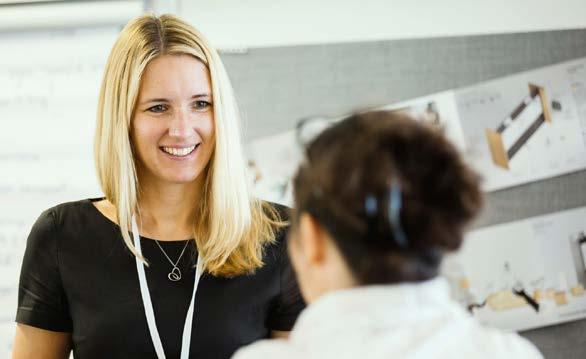
1.3.4.3. PRODUCTS
Supply chain (see Chapter 3.2) Providing sustainable office furniture is only possible through collaboration with responsible suppliers. This allows us to use sustainable materials, focus on the region, retain skilled jobs and optimise our carbon footprint along the entire supply chain.
Sustainable raw materials (see Chapter 3.1.1) Bene products mainly consist of the renewable raw material wood. This should come from sustainable and wherever possible regional forests. The recycling share is becoming increasingly important both for wood-based and other raw materials.
Ergonomics and avoiding emissions (see Chapters 3.1.4 and 3.1.5) Well-being depends on various factors. Well-designed furniture has many health benefits and, for instance, can help prevent allergies and postural problems. Customers are increasingly requesting furniture that emits as few emissions as possible and does not therefore pollute the immediate office environment. This influences our selection processes when it comes to chipboards and textile fabrics. Offices are places for social networking. Innovative collaboration ensures long-term success for the company and quality of life of the employees.
Design for reuse or recycling (see Chapter 3.1.7) Bene office furniture has a long service life thanks to its high quality. This can be further extended through the options for exchanging or renewing individual components. At the end of product use, a simple and homogenous disassembly process is guaranteed, so that the recycling process can be completed as fully as possible.
Efficient use of resources (see Chapters 3.3.1 and 3.3.2) Raw material efficiency and the optimised use of varnishes and glues improve our impact on the environment and save costs. Efficiency with water and packaging is also an important topic.
Life cycle assessment (see Chapter 3.6 and 3.10) When optimising the carbon footprint for our products, we focus on those areas which we are able to influence ourselves: these include the carbon emissions resulting from our activities at the Waidhofen plant in connection with heating, compressed air and other electricity consumption. We also optimise transportation emissions. We also reduce other environmentally-damaging emissions besides carbon emissions.
Waste management (see Chapter 3.9) Avoiding waste and separating the different kinds of waste by type reduce both costs and environmental pollution.
Innovative workstations (see Chapter 3.1.7) Modern workstations combine innovative technologies with the demand for ecological and ergonomic requirements
1.3.5. PRIORITISING THESE ISSUES
The Sustainability Team here at Bene has prioritised these relevant issues into two dimensions: these are in accordance with the influence on stakeholders’ assessments and decisions and with the importance of the economic, ecological and societal effects.
In terms of sustainability products and employee issues are of utmost priority. It is evident that the market is increasingly demanding products with a low environmental impact. Ecodesign and sustainability are therefore increasingly becoming profitable features that distinguish us from our competitors. Employee issues are therefore a top priority because motivated, healthy and well-trained employees perform better. In turn, any reduction in the number of employees increases the pressure on the remaining workforce, and a high turnover also entails an economically detrimental loss of knowledge.
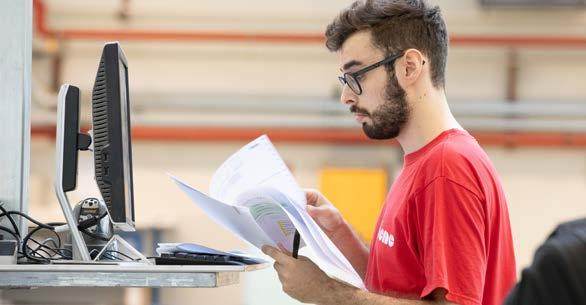
Relevance for stakeholders
Ergonomics and emission-free furniture
Innovative workstations
Education and further training Health and safety
A good relationship with our suppliers
Sustainable raw-materials
Equal opportunities Customer satisfaction
Design for reuse and recycling Communication and working environment Life cycle assessment
Efficient use of resources
Waste management
Ecological, social and economic impact
1.3.5.1. ENVIRONMENTAL AUDITS AND REPORTING
The waste report and waste management strategy are compiled by appointed waste representatives. The environmental and the waste representatives act as advisers in the value-added processes by providing their knowledge and experience. In order to instantly be able to recognise any potential for improvement, our compliance with environmentally-relevant standards is audited.
We monitor its implementation by means of an action plan. Furthermore, the management representatives periodically report to the Executive Board of Bene GmbH, which takes place in the form of a management review .
Samir Ayoub
Managing Director, designfunktion Holding GmbH, Germany
We are very pleased in the designfunktion group about the nationwide strategic cooperation. For me, Bene stands for first-class solutions in dealing with room and space concepts. The products always combine aesthetic quality with highly functional benefits. We view this as a design function. This is why we fit so well together.
1.4. SUSTAINABILITY GOALS AND PROGRAMME 1.4.1. SUSTAINABILITY GOALS
The following goals were developed in 2017 with participation by employees, before being assessed by the sustainability working group and decided at the Executive Board level. The sustainability programme derived from this lists the specific measures, responsibilities and planned deadlines for achieving the goals and their impact on the Sustainable Development Goals (SDGs – more on this in the next sectio11 of the United Nations.
Goal III formulated in 2017 - Process wood-based materials from sustainable forestry - was expanded to „Process raw materials and energy from sustainable sources” for the upcoming period.
We have defined the following objectives/goals for the coming financial years:
I. Increase customer satisfaction (SDG 12) II. Reduce the carbon footprint for products (SDG 3, 7, 9, 12) III. Process raw materials and energy from sustainable sources (SDG 13, 15) IV. Continue to develop expertise and make it sustainable (SDG 4, 8) V. Promote social community and health (SDG 3, 8, 16)
At a United Nations (UN) summit in September 2015, the initiative known as Agenda 2030 (https://www.bundeskanzleramt.gv.at/themen/nachhaltige-entwicklung-agenda-2030.html) was adopted with the title „Transforming our world: the 2030 agenda for sustainable development”. All 193 UN states have committed to working towards the implementation of the 2030 Agenda with its 17 Sustainable Development Goals (SDGs) at national, regional and international level.
1.4.2. SUSTAINABILITY PROGRAMME
Our sustainability programme specifies the sustainability goals listed in the foreword and in the previous chapter and lists the specific measures, responsibilities and implementation dates for achieving these goals. We see sustainability and taking responsibility as an ongoing process and therefore this list only represents a snapshot. Work takes place on it continuously and it is subject to constant change.
Actions
Certification of selected Bene products according to the EU Ecolabel for furniture
Responsibility
IMS-Team
Date Goal
2021 I.
Use of sensor technology, booking apps and analysis for the efficient use and control of buildings or office space
Workspace consulting – Support and analysis for companies in combination with change processes
Publication of the Bene Sustainability Report 2021 Innovation and design 2021 I.
Innovation and design 2021 I.
IMS-Team 2021 I.
Offers for customised office planning with sustainable and / or certified floor coverings only
Space reduction in planning through remote working and shared workplaces (future-oriented spatial planning) ICOD (International Corporate Office Design) 2021 I.
ICOD 2021 I.
Establishment of „distributed production” in order to shorten delivery routes and to enable more flexible responses to customer requirements Product Management 2023 I., II.
Development of a furniture rental model for the Austrian market Sales 2022 I., II.
Home office products to support companies with the introduction of remote working Product Management 2021 I., II.
Reduction of transport volumes by combining all deliveries from Bene, NOS and hali into BGO Montage und Logistik GmbH Executive Board 2021 I., II.
Emission reductions of approx. 50 % by replacing the old chip boiler with four new smaller ones, including a state-of-the-art electrostatic precipitator Director Production & Engineering 2021 II.
Conversion of conventional lighting in the plant office and social rooms to new LED technology Head of Production 2022 II.
Conversion of conventional lighting in the Vienna showroom to new LED technology Site Management Vienna 2021 II.
Conversion of conventional lighting at the Paris location to new LED technology Site Management Paris 2021 II.
Commissioning of a powder coating plant for greater flexibility, reduction in variants and shorter response times Head of Production 2022 II.
Further reduction in the ecological impact of the PIXEL boxes (use of plastic levelling adjustment legs made from 100 % post-consumer recycling material) Product Management 2021 II.
Energy and emission reductions through new state-of-the-art KFL 2 edge banding machine Head of Production 2021 II.
Actions
Reduction in energy and emissions as well as increased flexibility by replacing the old Weeke BHT 800 and BMT 450 systems with a new state-of-the-art drilling machine
Use of company-owned roof surfaces for own electricity production through photovoltaics
Responsibility Date Goal
Head of Production 2022 II.
Director Production & Engineering 2023 II.
Switch from conventional plastic adhesive tapes to carton adhesive tapes Head of Production 2022 II.
Conversion of 10 company vehicles to mild hybrid technology (10-15 % fuel savings)
Inclusion of full hybrid vehicles in the car policy Vehicle Fleet Management 2021 II.
Vehicle Fleet Management 2021 II.
Completion of the test phase for electric mobility (2 plug-in hybrid vehicles and 1 fully electric vehicle) Vehicle Fleet Management 2021 II.
If the test phase for electric mobility is successfully completed, purchase of electric service vehicles Vehicle Fleet Management 2021 II.
Installation of electric charging stations at the Waidhofen a. d. Ybbs site Vehicle Fleet Management 2022 II.
3D printing as a new technology for more flexible production of end-consumer products
Increasing the share of certified fabrics (e. g. EU Flower) or fabrics from recycled or environmentally-friendly materials Vehicle Fleet Management 2021 II.
Vehicle Fleet Management 2021 II.
Update of the life cycle factors for the life cycle assessment to Ecoinvent version 3.7.1 IMS-Team 2021 II.
Supplementing the lifecycle factors for the environmental footprint for products (Product Environmental Footprint) for the life cycle assessment IMS-Team
Reduction in printed advertising material (catalogues, brochures, etc.) by approx. 40 % Marketing
Replacement of the old WiFi infrastructure with new energy-saving stateof-the-art components IT 2021 II.
2021 II.
2021 II.
Return of old IT equipment to the „social computer cycle” IT 2021 II.
Replacement of PVC-based faux leather with PVC-free alternatives Product Management 2021 III.
Switch to CoC-certified compact boards and laminates Procurement 2021 III.
CoC certification for selected OEM suppliers Procurement 2022 III.
Use of certified base papers for printed advertising materials (catalogues, brochures, etc.) Procurement 2021 III.
Expansion of the onboarding programme with „Start-up” and Bene course book for higher qualification of employees
Increased apprenticeship training in the commercial areas
Organisation of the training and networking event „Bene Fit” (every 2 years) Human Resources 2022 IV.
Human Resources 2021 IV.
Product Management 2021 2023 IV., V.
Actions Responsibility Date Goal
Sorting plant for flat melamine components to reduce physical activities Head of Production 2023 V.
Purchase of „stair risers” for assembly and logistics that transport loads up and down over stairs Logistics Manager 2022 V.
Re-launch of the international „Healthy at Bene” programme
Recognise long-term Bene employees. Human Resources 2021 V.
Human Resources Annual V.
Organisation of a family day (open house day) at the Waidhofen a. d. Ybbs production site.
Organisation of regular joint activities (e. g. company excursions, skiing days) Human Resources 2023 V.
Works Council Annual V.
The environment has always been important to us, long before the implementation of our management systems. The following measures are some of the ones that have been successfully implemented in previous years:
2009 PEFC certification at Bene
2010 Certification of all products manufactured in Waidhofen an der Ybbs according to the ecological product standard „Blue Angel”.
2011 Publication of the first Bene sustainability report and receipt of the Austrian Sustainability Reporting Award (ASRA), expansion of the carbon footprint calculation model to include recycling shares in the input and updating of the lifecycle factors, preparation of Bene environmental product declarations (Life Cycle Data Sheets (LCDS)), decision not to use power generated by nuclear power plants
2012–2013 Certification of many product groups according to the ecological product standard Greenguard, Bene Future Tree, which involves employees in the company’s sustainability activities in an innovative way
2013 Decision not to use tropical veneers at all in Bene’s standard range
2014 FSC© certification at Bene
2016 Sale of Zell plant, award as Austria’s best training company 2016 for joinery, last gas forklift replaced with an electric forklift
2017 Publication of Bene’s second sustainability report, expansion of Bene‘s EPD / LCA calculation method to include additional impact categories (e. g. Water Footprint)
2018 Certification according to the EN ISO 38200 standard, incorporation of textile fabrics made from 100 % recycling material in the standard fabric range
2019 Conversion of production hall lighting to new LED technology, introduction of new LEVEL LIFT standing/ seating table range with significantly lower standby power consumption, WY plant canteen (freshly cooked), revitalisation of factory office, PIXEL made from 100 % FSC-certified material, introduction of the „Bene Course Book”, launch of „Healthy at Bene” programme
2020 FEMB level certification for products, conversion of all raw panels (e. g. raw chipboard and MDF panels) to formaldehyde (E½ quality), „Bene goes Green” programme in Germany („Jobrad”), purchase / use of electricity from 100 % renewable resources

1.4.2.2. GOALS THAT HAVE NOT BEEN ACHIEVED OR MEASURES NOT IMPLEMENTED
It was not possible to implement some of the goals and measures from the Sustainability Report 2017 on account of the difficult economic situation in recent years and because of the COVID-19 pandemic that has been rampant since 2020, despite good planning and intensive efforts.
•Certification of the existing health and safety management system in line with the new international safety management system standard ISO 45001 • • Replacement of the emergency oil boiler with a wood chip boiler for power generation Increase in the share of certified veneers in the total processed volume
1.5. STAKEHOLDERS
Responsible company management requires the communication with the company’s stakeholders. Bene encourages constructive and critical exchange with all stakeholders who show openness and readiness to achieve a sustainable future together. Incorporating them into corporate decisionmaking processes is seen as part of a continuous process. Bene communicates on different levels with stakeholders and incorporates the findings from these discussions into its actions. Openness, clarity and constant communication with the public are indispensable for maintaining stakeholders’ trust in the company. This sustainability report is an important instrument for reaching this goal. It provides information about current ecological, societal and social developments and forms the basic principle of constructive dialogue with different stakeholders in society.
A detailed list of the most important stakeholder groups and the forms of communication with these can be found in the appendix (Chapter 4.4).
1.6. LEGAL COMPLIANCE INFOBOX
Industrial manufacturing of Bene products complies with all environmental regulations. Continuous development of the management system also helps us to improve our environmental performance above and beyond the legal requirements. Bene has established a comprehensive system for monitoring all legal obligations and to ensure that they are upheld. The Bene legislation register regulates the implementation of and conformity to all laws relevant to Bene sites in accordance with Austrian state, federal and EU law. It is updated quarterly in collaboration with legal experts.
The following areas of law are included:
• • • • • Waste law Industrial plant law Work protection law Chemicals law Energy management law • • • Hazardous goods law Clean air law Environmental management • Water law
Bene’s communication strategy seeks to show people in their working environment. We want to present different cultures and genders beyond traditional clichés. Bene adheres to the code of conduct of the International Chamber of Commerce (ICC).12
Various eco-labels that apply to Bene have stipulated that certain advertising messages may not be used. The Blue Angel, for example, does not allow the phrase „furniture for healthy living” („wohnbiologisch geprüft”). Bene ensures compliance with these regulations applicable to advertising measures.
Our system is working: In the current reporting period, company management has received no warnings or fines for the infringement of the applicable regulations concerning environmental law, product safety, product liability, competition regulations, consumer protection laws or advertising campaigns. There are no known cases of human rights violations or of child or forced labour in the direct sphere of influence of the Bene Group (e.g. at our own production sites, among suppliers or assembly service providers).
1.6.1. PREVENTING CORRUPTION
In joining the Global Compact of the United Nations, we are sending a clear signal of our commitment to actively preventing corruption in everyday business. Even before this, fair business practices were already of utmost importance to Bene. Bene has always focused on fairness and professional business processes. No cases of corruption occurred for the reporting period. We have introduced treasury guidelines right across the Group to minimise the risk of corruption. By doing this, we have established a comprehensive „principle of dual control”. Access to accounts is only ever possible in the presence of two people. We informed all sales representatives via e-mail about the requirements of this guideline. In addition, the Executive Board has drawn up the Code of Ethics (http://bene.com/pics/misc/bene/Verhaltenskodex/Bene-Verhaltenskodex-DE.pdf), which is binding on all Bene employees. Employees at particular risk of exposure based on a risk assessment receive annual training.
1.6.2. DATA PROTECTION
All requirements under the General Data Protection Regulation (GDPR)13 are complied with in the management and storage of personal data. The Bene Group has appointed a Data Protection Officer (DPO). There are also data protection coordinators in all data-relevant departments who work together to implement and improve our data protection measures and strategies. In addition to the internal regulation (data protection guideline), a Data Protection Declaration has also been developed, which is accessible to the public via the website (https://bene.com/de/datenschutzerklaerung). This provides detailed information on data processing as well as on data protection mechanisms, storage periods, rights of the respective individuals and the options available for contacting Bene. Our products are used in a wide range of companies, sectors and institutions. Trustworthiness and confidentiality are extremely important. Bene’s Chief Information Security Officer (CISO) is responsible for the technical protection of data, as it is necessary to protect customer data from loss or misuse.
So far, we have not received any complaints regarding violations of the GDPR or the loss of customer data. To ensure that this remains the case in the future, the CISO and the DPO are consulted in the case of data protection-relevant investments (for example, new software) or activities.
1.7. SALES: THE BENE SALES NET
A customer-oriented sales network that speaks many languages – we are an international brand with Austrian roots, and we are proud to be represented in over 40 countries. Over the past few decades we have established a dense network of our own sites and authorised dealers spanning from Vienna, London, Berlin and Paris, to Dubai and Sydney. Thanks to our local presence, we speak the language of our various clients – not only in the literal sense, but also in terms of regional and cultural contexts.
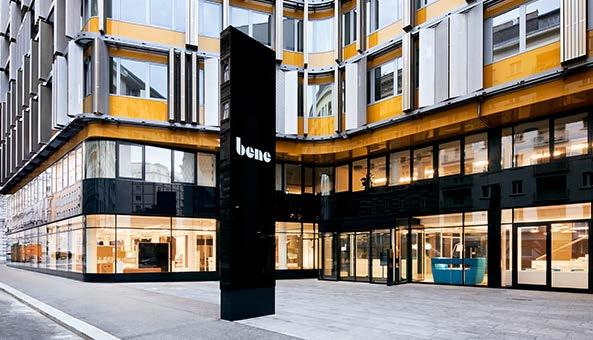
Fergus Bowen
Managing Director Bene United Kingdom & Ireland
I enjoyed 8.5 years working for Bene between 2005 and 2013 but then left to take up a position with another organization. I soon realised that I really missed being a part of the team. The company culture encourages collaboration in a business-like and enjoyable environment, and individuals always to ‘go the extra mile’ within their job functions.
Bene is a forward thinking organization, always looking to identify or create the next trend and developing beautiful and functional products to match.
1.7.1. CUSTOMER SATISFACTION
An essential goal of any company is to satisfy its customers. We have placed this goal at the top of our list (see the Foreword and Chapter 1.4.1) and are taking many steps in all areas to achieve this goal.
Our customers not only receive outstanding support during the sale stage, but also in the pre-sale stage and afterwards. We keep in touch with our customers via different channels, such as the Bene website, the customer newsletter, as well as events and personal visits. It is also important to us that we settle complaints in a positive and rapid manner. Through a variety of measures, we have been able to achieve a significant decrease in complaints over the past five years. In 2020, the complaint rate was just over one per cent (1.04 %).
In addition to dealing with complaints, meeting promised delivery dates also has a significant influence on customer satisfaction. Only about 1.6 % of all our deliveries are delayed, resulting in a delivery backlog.
1.7.1.1. CUSTOMER SATISFACTION MEASUREMENT
In order to continuously improve our service quality, it is important to understand our customers’ needs even more precisely. This is why we conducted a market study on customer satisfaction in 2019. In the process, we surveyed our customers’ experiences, concerns and wishes.
The results were consistently positive and, compared to previous years, indicate improvement in the areas of delivery satisfaction and customer service; indeed, customers exhibited a high intention to recommend our company to others. • Over 90 % are very or somewhat satisfied with Bene overall. • Bene is perceived as a strong brand with a long track record of addressing labour market developments and standing for design, quality and innovation. • 90.7 % of participants were very or somewhat satisfied with their delivery. • 91.7 % of participants are very or somewhat satisfied with customer service.
Moath Al Muhalhel
Generaldirektor Al Muhalhel, Kuwait
Bene and Al-Muhalhel co.’s collaboration in Kuwait has a rich history for over 18 years dating back till early 2003, collectively setting a benchmark in defining, designing and furnishing tailored offices and working environments that compliments the functionalities and unique identities of our clients in the region.
With the induction of Kuwait Vision 2035 „New Kuwait”, the governments’ national development plans have been linked to international goals and factors by adapting United Nations Sustainable Development Goals (SDG‘s) 2030 agenda to Kuwait’s Vision. With Bene’s sustainable furnishing systems we can help our clients to achieve their sustainability goals.
